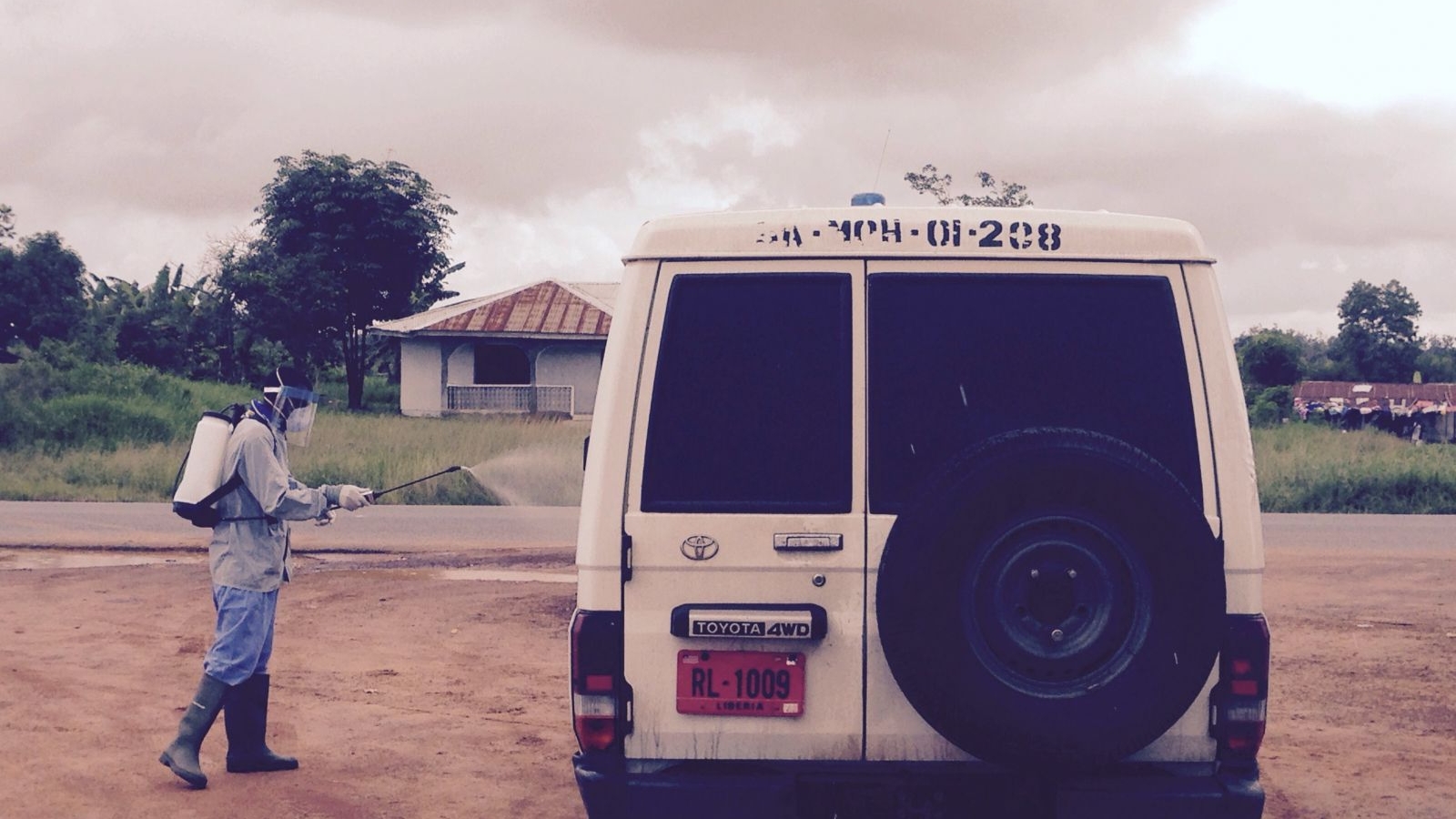This article was originally published by Ebola Deeply.
By Kate Thomas
Health officials in Liberia have confirmed that the corpse of a 17-year-old boy, from the village of Nedowein, 30 miles from Monrovia, has tested positive for Ebola. The news comes almost two months after Liberia was declared Ebola-free. From Monrovia, Kate Thomas reports.
Health officials on Tuesday confirmed that the dead body of a 17-year-old student from Nedowein, close to Liberia's international airport, has tested positive for Ebola. The news breaks Liberia's good record of zero Ebola cases since early March; the country was declared Ebola-free on May 9, exactly 42 days after the last case.
"We don't yet know the source of infection," Tolbert Nyenswah, who heads Liberia's Ebola response, told Ebola Deeply. "We are investigating whether the boy had traveled, and we are listing contacts. The boy died at the home of his father, and we are providing the household and community with the support that's needed. It is possible that we will find additional cases, but at this point it is only one case."
About 30 contacts are believed to be under surveillance so far, and the nearest Ebola treatment center, in Margibi County, has been reopened. The boy's parents are believed to be separated, so at least two homes have been quarantined.
An Ebola Deeply reporter who visited Nedowein on Tuesday afternoon, where the 17-year-old boy died, said the village had not yet been fully cordoned off. Nedowein – far from the borders with Guinea and Sierra Leone – skirts the community of Smell-No-Taste, so called because it once housed a U.S. military community known for cooking pungent dishes.
Liberia's health minister Bernice Dahn said that officials were alerted when relatives called the Ebola hotline soon after the boy's death. A swab was taken from the boy's body on June 28, and a safe burial was conducted on the same day.
"This case demonstrates the importance of testing dead bodies before burial," Dahn said. "It also shows that our alert system is working. For us to be successful during the last outbreak, we all worked together; the formal sector and the informal sector. We did it before, so we can do it again."
Although many of Liberia's Ebola treatment units (ETUs) have been shut down since May 9, Nyenswah said that they have not all been decommissioned.
"We tested the corpse and we reactivated the ETU. Before, this kind of intervention would have taken a week or two, but we acted within 24 hours this time," he said. "The surveillance system is working. We are disappointed because we wanted to keep our clean sheet of Ebola freedom. [But] we have the energy and the capacity to contain this."
Many Liberians say they are concerned that the country has kept its borders with Guinea and Sierra Leone open, despite active cases of Ebola there. At least four new cases have been recorded in Sierra Leone since last Thursday, and 32 health workers are currently under quarantine at a Freetown hospital after a woman tested positive after giving birth.
"Why are the borders still open?" asked Josephine Flomo, from Monrovia, who lost her brother-in-law to Ebola. "There are many unofficial and official crossing points from Liberia to Guinea and Sierra Leone. We are afraid that another case could come by land."
But Nyenswah said Liberian authorities plan to keep borders open in order to allow trade and free movement. Temperature checks are enforced at major crossing points.
"Border closure is not an option," he said. "We have not established whether or not this case came from across the border."
*****
*****
Kate Thomas is a contributor to Ebola Deeply.
[Photo courtesy of U.N. Photo]